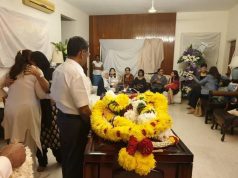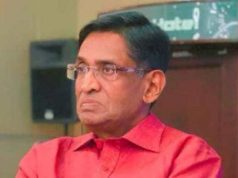

PUTRAJAYA, December 4 – The government, through the Health Ministry, has never refused or practised favouritism in providing health treatment to foreigners in the country, said Health Minister Datuk Seri Dr S. Subramaniam.
He said Malaysia had a clear policy and different procedure in providing treatment to non-citizens based on the status of their entry, whether legally or illegally.
However, based on humanitarian grounds, government hospitals and clinics have never refused treatment to foreigners, even those who are illegally in the country, but for a different fee and procedure.
“This situation frequently occurs in areas in Sabah, for example at the Tawau Hospital, where more than 40 per cent of its outpatients are Filipinos and Indonesians.
“Meanwhile, at health clinics in Lahad Datu and surrounding clinics, more than 60 per cent of the patients treated are illegal immigrants,” Dr Subrsamaniam told a news conference in Putrajaya, Wednesday.
He was commenting on a statement by United Nations (UN) Special Rapporteur on the Right to Health, Dr Dainius Puras in a newspaper Wednesday asking the Malaysian government to provide equal medical treatment to foreigners.
Puras was quoted as saying Malaysia should stop requiring doctors at hospitals and clinics to refer illegal immigrants to police counters or police beat based while they are seeking treatment.
Dr Subramaniam said each country had a different healthcare system and such allegations contradicted with what was being practised, whereby if compared to other countries, Malaysia practised the highest humanitarian attitude towards illegal immigrants in terms of providing health treatment.
He said this humanitarian attitude can be seen when there are illegal immigrants who would resort to various tactics to obtain the health facilities provided by the Malaysian government.
“To overcome this, we have taken various measures which include creating more health facilities at border areas with the cooperation of neighbouring countries, he said.
Meanwhile, Dr Subramanian said widespread use and abuse of antibiotics in the country had led to increased antimicrobial resistance to the point of causing death.
He said this happens when the antibiotics which initially can treat infection is no longer effective as the bacteria become immune to medication.
“Infections caused by resistant pathogens are difficult to contain and it can lead to the spread of life-threatening diseases.
“Such infections can increase the death rate and result in more time at the hospital as well as increase the risk of being warded in the intensive care unit,” he said.
He said a disease resistant to antibiotics, ‘Carbapenem Resistant Enterobacteriaceae’, had increased from 65 cases in 2012 to 150 cases last year, with 10 per cent deaths in 2013 compared to nine per cent the previous year.
Therefore, Dr Subramaniam urged doctors and pharmacists to play a role in preventing the spread by prescribing antibiotics appropriately, heeding guidelines despite pressure from patients as well as educating them on the disease and antibiotic treatment.
-BERNAMA









